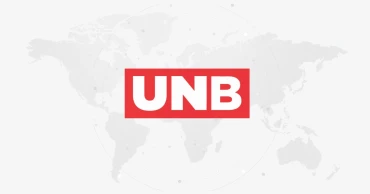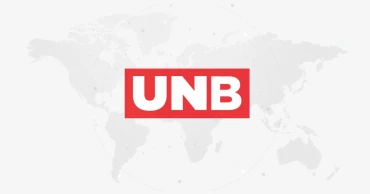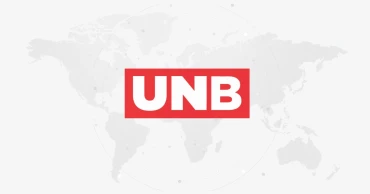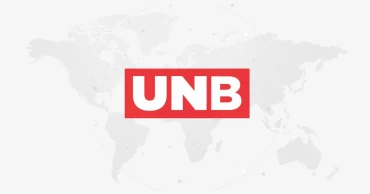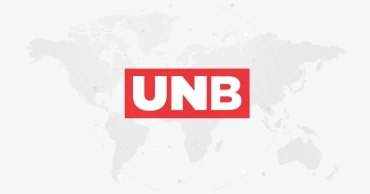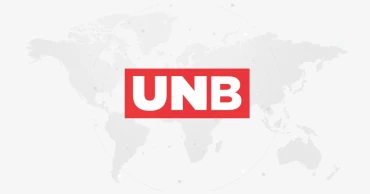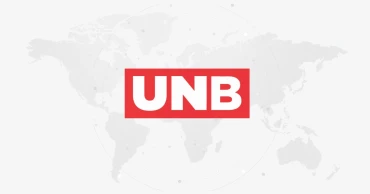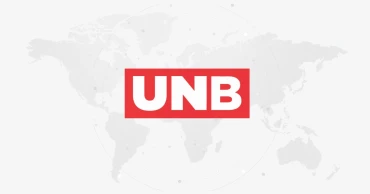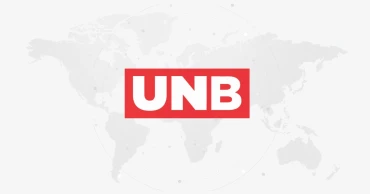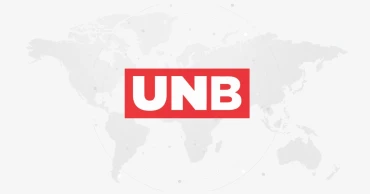Opinion
So it's farewell time Ali Imam bhai
One by one, most of the names of my own past are tiptoeing away from the scene. It’s not just the elderly but the near contemporary like Ali Imam bhai who was just a couple of years senior to us. We were both students together in the same university many moons ago and into cultural activities as well. It was soon after liberation and cultural freedom was in the air. Somehow we all ended up in the TSC auditorium so many times, me more an organizer and him, more a participant. He was already one of those young ones who was already a star.
Ali Imam bhai was not the only one of course and there were others like M.Hamid bhai, K.M. Harun bhai and others. Interestingly many of these performing artists ended up in the TV world, BTV. It was then the lone star and Ali Imam bhai went there too. And for him there was no looking back.
“Let a storm rise”
I remember a set speech competition where my task was to hold the cup from which various participants picked a topic and 5 minutes later would deliver a speech on it. It must have been the winter of 1973. Ali Imam bhai picked up the topic ,a line from a famous song, “ emon ekta jhor uthuk” (Let a storm arise ) and spoke scintillatingly on it. Of course he won the top prize but more than that it showed his ability to articulate on any topic and not just make sense but speak forcefully too. He was gifted and he went on from achievement to achievement with an ease few can muster.
We met professionally several times in our life but when I was working for UNICEF we were close. He was also freelancing for Channel I and Faridur Reza Sagar bhai. Together they made a team and while Sagar bhai was the organizer, Ali Imam bhai was the creative soul. Later on , he became even more closely involved and ran a UNICEF project on media and children. He knew children, he understood the media and together they made the best combo.
His achievements as a writer for juveniles literature was unparalleled and it was not the Bangla Academy award that certifies it but the fact that he wrote more than 300 volumes plus. He probably would have gone on to write another 100 had ill health not cut him down in what could easily have been his literary prime.
For him and many others, 1971 was a storm and it threw to the fertile earth many talents and unleashed the power of several generations that has constructed the socio-cultural framework of Bangladesh. He was one of the architects of that.
Time and farewell
I remember years back when we met at the Bangla Academy book fair. We sat down at one of the impromptu tea stalls and sipped tea discussing nothing in particular. I asked him about a book he had mentioned doing with me on history for children. He replied,“ Oh, Afsan, how I wish I had enough time to do all the projects I have planned. I just have no time. “
Farewell, Ali Imam bhai. Now you will have all the time in the world.
Qatar World Cup: Biggest party or scam in the world?
As the world watched the FIFA World Cup 2022 – hosted by Qatar – opening ceremony full of entertainment and anticipating a whole month of high-octane football action, I had a twinge of doubt. Are the ethical and moral circumstances surrounding this latest edition of the World Cup Ok?
A couple of days back I was watching the recently released Netflix documentary, “FIFA Uncovered”. It is a documentary exposing all the dirty laundry of the governing body of the most loved and followed sport on earth. Some of the revelations put an end to any doubt of FIFA’s love for corruption. The ex-co members of FIFA deeming Qatar worthy of hosting the 2022 World Cup is the shining jewel at the top of FIFA’s corruption crown!
Qatar beat the USA and Canada to become the hosts of the 2022 World Cup, defying all logic as at the time of the voting, Qatar had next to no infrastructure worthy of hosting an event of this magnitude in comparison to their opponents vying for the same project. Despite all this, Qatar was able to “buy” their way into becoming the hosts as the documentary shows.
Read: Qatar ready to open Mideast’s first FIFA World Cup before leaders, fans
A segment shows the immense Qatari investment in French ventures following the ensuring of Michel Platini’s (former UEFA president and FIFA ex-co member) vote going for Qatar’s bid. Interestingly, Qatar’s investment in Paris Saint Germain, the biggest club in France and the club Lionel Messi plays for now, is a part of Qatar’s investment in France following Platini’s tilt.
Sports washing has long been an issue plaguing the world of sport. It’s basically a bid to use sports to improve reputations and brands damaged by wrongdoings of many kinds. What better sport than the most famous one known to mankind? So, an investment of USD 12 billion to host this World Cup was worth it. This included building stadiums, hotels and even entire cities from scratch. Qatar’s bid to sportswash their country’s image of human rights violation (let’s not get into the details) was just the latest in a long run which included the 1936 “Nazi Olympics”.
Read: FIFA World Cup 2022: Things you need to know
As a football romantic, I am cynical of the credibility of the 2022 World Cup and its shenanigans, but as Morgan Freeman said during his speech at the opening ceremony in what according to me was the highlight of the evening, “What unites us here is so much greater than what divides us. How can we make it last longer?” I do hope the most emotionally stirring game in the world does take center stage amidst all this controversy, and if not anything else, we as a world community can enjoy our heroes fighting it out far away from the dirt that touched the hands of FIFA officials and celebrate the ultimate glory anyone related to football can dream of!
Can Bangladesh Bank make depositors feel safe ?
The recent statement by the Bangladesh Bank that everything is fine with the banking sector and depositor’s money is safe has caused both mirth and irritation. Basically, this anxiety is created by both formal and informal media systems that regularly report on the ill health of the banking system. Given the mess the financial sector is in, the central bank doesn’t come out as more reliable than these sources.
Dhaka Tribune reports, “The Bangladesh Bank today said that the deposits of common people in banks are completely safe. The central bank said this on Sunday in response to propaganda on various social media stating that the commoners are withdrawing their deposits from the banks. This is not correct and is being made out of conspiracy, according to a press release.”
Read: Banks have Tk 1.69 lakh crore excess liquidity: Bangladesh Bank
How BB was so sure it’s a conspiracy we are not sure but the public is very nervous and Bangladesh Bank had better accept that reality. In the last few months, the economy has not performed in exactly a stellar manner. There are several reasons including the dire global situation as all know and are regularly told. What they don’t mention are the internal problems that haunt the financial sector including corruption and incompetence.
Dollar drama
Not many own dollars but it’s the biggest question today. National economy is now being measured according to dollar reserves and rates. But “something is rotten in the state of Denmark” as Hamlet said is now the main anxiety. And like it or not it's BB’s responsibility to supervise and steer the ship through the foreign exchange sea. As media reports, (New Age) , as many as 20 banks are unable to make payment of import LCs including state owned banks. The source quoted in Bangladesh Bank itself.
The reasons are allegedly ‘poor remittance’ and import earnings. Meanwhile the forex interbank market has become dysfunctional. As a result, some foreign banks have started to limit credit lines for Bangladesh. Bangladeshi banks have reportedly failed to pay Standard Chartered Bank, Mashreq Bank, Abu Dhabi Commercial Bank, Commerz Bank, and Axis Bank.
Interestingly, Islami Bank which channels about 30% of foreign earnings also failed to make payment to foreign banks. Why , we have not been told. State-owned Sonali Bank, Agrani Bank, Janata Bank and Rupali Bank are the other names. These banks have sought the intervention of the central bank which has been refused. LC opening has declined by about 40 % according to the report.
Meanwhile, default loans continue to rise and grow as corny capitalism finds banks as their best friend.
So why do we need the central bank if it can’t do its job?
So when Bangladesh Bank says, public money is safe, one has difficulties believing it. The banking sector resembles not the proverbial Wild West but the Cox’s Bazar scenario where the border between law and disorder is not always clear. It is supposed to monitor the banking and non-banking finance sectors but the central bank would not pass that exam. The failure of the shuttered banks like Basic, Farmers etc and sick banks like National and a host of NBFIs are good examples of inadequate supervision.
The reason why the dollar market faces a crisis is also because Bangladesh Bank took no steps to prevent the acts which led many banks and attendant outfits to commit irregularities. It developed no guidelines and never implemented any.
Read: Money changers can keep Tk 50 lakh max: Bangladesh Bank
Bangladesh Bank may argue that they are overridden by the Finance Ministry or other political agencies but the point is, those working for it have also made a choice of being there. It can’t serve as an excuse. I too have made choices to work for an outfit and accepted the editorial policy of the House. When it became too much, I left.
But it also means that Bangladesh Bank, due to its own performance record, as a guardian, is not in a position to reassure depositors. It has not been able to prevent any crime. It’s visible only when they are committed. Depositors' money may be safe but that’s not due to what Bangladesh Bank says or did.
Pakistan’s politics of FIR registrations
When a Supreme Court directive is needed to get an FIR registered, one has to accept that the formal system is not really in place. And when that FIR leaves out all the names originally mentioned by the accused, one asks if that qualifies as an FIR either. Imran Khan’s “attack” has triggered a dismal display of how weak the formal state system has become or perhaps never grew up in Pakistan.
Barring the army, everything looks like a rickety structure that gets blown away at the first swish of any adverse wind. The conflict between Imran’s PTI and the Shehbaz ML + the army is not what can make people feel confident about Pakistan’s political future. Although located in the formal space, the political functioning is informal and that is what is ailing Pakistan.
Read more: Imran Khan far better actor than Shahrukh and Salman, says Pakistani politician
Sindh Labour Minister Saeed Ghani has called for an investigation into the number of bullets Imran Khan took. He has asked for a team to investigate whether or not the PTI chief sustained four bullet injuries or less.. When a minister belonging to the party in power squabbles over the number of bullets a person gets hit by, it's not even an absurd situation. It’s surreal.
The FIR drama
PTI leader Fawad Chaudhry has said the people will never accept that a particular group remains above the law. This was in connection with the refusal or delay in registering the FIR over the assassination attempt of Imran Khan. Imran had mentioned three names and this included a senior official of Pakistan intelligence services. The army had responded by calling such allegations baseless and unacceptable.
The FIR was however filed after the Pakistan Supreme Court’s five-member bench, headed by Chief Justice of Pakistan (CJP) Umar Ata Bandial ordered the Punjab police chief Faisal Shahkar to register the FIR.
It was done so but it does not contain the names of interior minister Rana Sanaullah, Pakistan army’s senior official DG(C) ISI Major General Faisal Naseer and Pakistan Prime Minister Shehbaz Sharif whom Imran Khan had mentioned in his application as the three prime accused.
The FIR only named Naveed, the person who was caught at the meeting. Charges of terrorism, murder and attempt to murder have been made against him in the FIR.
Naveed had said after his arrest that he was angry and wanted to kill Imran Khan because “they were playing loud music on their deck while the Azaan is being recited, so I decided to kill him.” he has denied any political links.
Read more: ‘Because I fell, one of the shooters thought I’d died, and left’: Imran Khan
Politics after assassination FIR
The registration of the FIR by the police after being directed by the Supreme Court shows that there is some judicial clout left. But leaving out the very names which had made the FIR unacceptable also shows how hollow that is. Everyone’s angle has been kept it seems but the FIR’s value is zero as the main persons are left out, the original reason for refusing.. However, PTI has gained much from the refusal to register and the ML and the army has also shown how much clout it really has. For the moment it seems a stalled game for all.
ML MPs have been abusing PTI and Imran Khan happily in the parliament but that is never where politics is played in Pakistan. From where it does, other unknown moves are on from which Imran and Shehbaz have both gained in the past and will do so in future. What the army probably didn’t expect was for Imran to fight back as he has done and that has embarrassed the army.
The army is however used to being embarrassed and won’t feel too bothered as nothing more happens beyond that. It’s aware that politicians are both weak and dependent on them to gain or stay in power. Given that equation nothing really has changed. Nothing really can change. But how much the majority of Pakistanis really want things to change is also not asked.
Pakistan’s politics of conspiracy will not stop
Pakistan’s history of conspiracy politics seems to go on and on. Although it has paid what is possibly the biggest price for any state-sponsored conspiracy flops – the 1971 war – its appetite for political conspiracy goes on. And in each of them, the army seems to be involved. Given the current critical phase with ex-PM Imran Khan naming the current PM, the Interior Minister, and a senior Intelligence official as the trio who planned to kill him but failed, things have worsened. Conspirators rule the roost including Imran Khan.
Imran was hit by bullets but has said that he survived because he fell down and the would-be killers thought he was dead. One person died and several were injured and Imran continues his political war from his hospital bed. He has asked his followers to continue their protests and Pakistan is under severe stress and unrest.
The “typing error” conspiracy state
In many ways, Pakistan is a product of conspiracy. The Lahore Resolution of 1940 which specifically spoke of “two states”, was amended by Jinnah arguing that the “two states” was a “typing error”. Jinnah’s act was more of a historical error resulting from political conspiracy. Jinnah’s Pakistan lasted only 25 years and though Bangladesh paid for it with blood, Pakistan paid with the ignominy of losing its half and its army’s humiliating surrender to arch-enemy India.
Read: Ex-Pakistan PM Imran Khan wounded in firing at anti-govt rally
In 1954, the elected government of East Pakistan was removed through a false accusation that the leaders were planning secession. In 1958, the army directly took over fully and destroyed whatever hope there was of one state. In 1968, it tried to stop the 6-points autonomy movement by falsely involving Sk. Mujib in the Agartala conspiracy case.
In 1969, the army moved in again and after the election of 1970 refused to hand over power to the elected party and instead offered the night of March 25. And the civilian politician Z.A. Bhutto was part of it too.
Post-1971
One would have thought the army had learned its lesson but the Bhutto hanging, the Gen. Zia plane blow-up, the various attempts on the lives of various leaders and the killing of Benazir Bhutto shows that a tradition of violent conspiracy has been established. Pakistan politics is about conspiracies and usually, the military is a player, directly or indirectly.
Read: Pakistan's ex-PM Imran Khan stable after shooting at anti-govt rally
Imran Khan himself is a product of the military in politics. He was replaced by Shehbaz as the ex-cricket captain no longer suited them. Now barred from holding office, he has taken to the street invoking the example of 1970 in East Pakistan which effectively ended Pakistan.
The Dawn writes in its editorial, “By going public with them ( accusations ), Mr. Khan has taken a step that he may find impossible to reverse. It seems highly unlikely that Shehbaz Sharif or Rana Sanaullah will step down on Mr. Khan’s demands, and it is improbable that the military will be interested at this time in removing a top official merely on his complaint. .. the acrimony between the state and the PTI will continue to grow. “
It goes on to blame the bungled management of the case by the Punjab police and “conflicting statements from the centre and Punjab have all added to the confusion and fuelled conspiracy theories.”
Read More: Imran Khan accuses Pak army of recreating 1971-like situation
Meanwhile, the army has called the allegations baseless and condemned Imran Khan. But that hardly matters. It has become embroiled in a crisis that may/can only end through more conspiracy and violence. The only option for Imran is the street, the only for the rest is to intern him, and for Pakistan more chaos. It’s the people who remain prisoners in the hands of its army and politicians that pay the price.
Brazil: Can Lula the Lefty do better?
Brazilian voters narrowly elected former president Luiz Inácio Lula da Silva, as the next President defeating Jair Bolsonaro, the right-wing incumbent. The vote percentage was 50.9% against 49.1% so it’s not a sweeping victory but a narrow squeak through. Lula is beloved of the Global Left who has no serious icons left in the world now. But the troubles may not be entirely over. Bolsonaro had indicated that he may not hand over power that easily but he seems to have relented now.
Bolsonaro, is an ex-army who had often said that he won't accept an electoral loss. Because the loss margin is less than 1% he was confident of street and public support. Bolsonaro supporters termed the election as a fraud and called for military intervention.
However, several key allies have recognized the result leaving Bolsonaro looking increasingly isolated. Meanwhile, U.S. President Joe Biden and the presidents of all of Brazil’s South American neighbors have congratulated Lula, further increasing the pressure on the incumbent.
Lula wants power not a fight and said, “As of January 1, 2023, I will govern for 215 million Brazilians and not just for those who voted for me. There are not two Brazils. We are one country, one people, and one great nation.”
Who is Lula?
Lula is a trade union leader who established the leftist Worker’s Party which won the Presidential election in 2002. He ruled for 2 terms and they coincided with a surge with booming value of Brazilian commodities and rising exports to China. His major expansion in social programs, particularly Bolsa Família which gave the poor “cash for school attendance” made him very popular. His departure in 2010 was with an 83% approval rating.
In 2017, Lula was convicted in a corruption case and sentenced for 10 years. But in 2021, Brazil’s Supreme Court overruled Lula’s conviction, saying his right to a fair trial had been compromised. But Brazilians are split on his guilt or innocence. 44% believe he was rightly convicted, while 40% believe his conviction was unjust.
Read: PM Sheikh Hasina congratulates Lula on winning Brazil election
Why did Bolsanaro lose ?
The main enemy is Covid and the global economic downturn. Bolsonaro handled it poorly with more people dying than all countries except the US. After Lula’s release, his alliance with disgruntled rights wingers tipped the scale. Lula has promised to restore public services now sunk low due to years of underinvestment, lower domestic energy prices, battle inflation and easing food insecurity. Some are however critical of his policies as he has declared nothing. Lula told TIME magazine, in March 2022. “ I’ve been a President twice already. We don’t discuss economic policies before winning the elections. First, you have to win the elections.”
With eight years of deep economic crisis, this round for Lula will be tough. Lula had greatly benefited from a commodity economic boom that was over. Now, global economic turmoil from the war in Ukraine is driving up energy prices, while a years-long drought is curbing food production.
Bolsonaro’s global image is very negative due to his ravaging of the Amazon and handling of the Covid crisis. He called it a “little flu” but ended up with 700,000 recorded COVID-19 deaths. But Bolsonaro is hardly over. Many of his ministers have won the election and his political movement is very alive. Even the former environment minister won a seat in Brazil’s Congress at the first round of elections making his right-wing Liberal Party the largest party in both the upper and lower house. The governorships of Brazil’s three most economically-important states were also won by Bolsonaro allies. Lula’s challenge is very big indeed.
Lula’s world has changed
Read: Brazil election: Lula defeats Bolsonaro to become president again
Lula is being welcomed by the liberal section of the West because of his environmentalist agenda. But Lula is also not an ally of the West as some think. He is not supporting Ukraine against Russia
“The United States has a lot of political clout. And Biden could have avoided [the war], not incited it, Biden could have taken a plane to Moscow to talk to Putin. This is the kind of attitude you expect from a leader.”
The world has changed much since Lula was the President last. Not only has the economy become more globalized and interconnected but the challenges are in every sector including health and war. Lula has returned to power when the world is in its worst shape in many ways since the last few decades.
In this world, a better environment and economy doesn’t depend on Brazil or Lula anymore. Russia and the West have shown their capacity to manage a world in which they reign as superpowers is very limited. Commodity prices have shifted by artificial demand loss generated by the war in Ukraine. The West did push the world into an acute shortage zone willingly, whether it’s the Russians or the US.
Why Lula should be responsible for saving the environment when the West doesn’t take on climate change issues is a question he won’t answer but will become a big reality. The One world never existed, never will. It’s how Brazil plays that game in the absence of any serious “political” globalization, that global issues including climate change should be considered.
Who is Li Qiang and what does his rise mean?
Many observers particularly in the West are disappointed that Xi was not replaced or his power cut. They are disappointed that there is no liberal democratic content in Xi’s policy after the 20th Congress was completed. Not only has he been confirmed for the third term but has appointed a “loyalist” like Li Qiang as the PM.
Quite the opposite has happened. He shuffled out old veterans like Hi Jin Tao, his predecessor and showed that he is quite ruthless when dealing with power politics. Western anxieties are factual but it misses a point. Its Xi’s under whom China has grown as the economic super power and he may not be interested in being nice to his political opponents as he follows his main goal, “economic supremacy”
Share markets have stumbled in response to his election but records show that such reactions are short term affairs. Given China’s economic performance record, the tumble reflects the idea that things will decline. Some Western companies may even be off loading their shares but nothing shows that China is flustered by HongKong or Shanghai index.
XI and Li
Xi has practically eliminated all his potent opponents in the power structure so the chances of spending time on managing internal opposition is low in his third term. His main policy agenda is economic, not conventional political development. With a very trusted lieutenant Li Qiang as the OM, he will be free to lead his objective of rapid growth through shift to the digital economy.
In this situation LI will play a major role. For the last decade, Li Keqiang ruled over the “North Palace” (the State Council) and President Xi over the “South Palace” (the CPC Secretariat) so they have a long history of working together. There was no rivalry or power conflict between the two. .
The main disagreements were over policy implementations and time management of policy decisions.. Xi wanted things done more quickly, While Li dealt with everyday realities. Most policy papers authored by Xi while he ran Zhejiang province were drafted by his secretary Li Qiang. This Li is one person whom Xi trusts more than all others.
Li is a native of Wenzhou, one of China’s highest-income cities. It’s a pioneer “modernization “cities which began as early as 1978, the first to set up private enterprises and hasn’t stopped since. Per capita income over the period has grown 500 times in that zone.
Li was the Wenzhou party secretary. He has an MBA from Hong Kong Polytechnic University, worked with Xi in Zhejiang, became the Governor of the province in 2013 and party secretary of Shanghai in 2017.His skill lies in high tech development and led the Shanghai Special Economic Zone success.
His record as a manager of Covid crisis is less impressive and was in fact replaced by “Iron Lady” Sun Chunlan. But his reputation as an economic manager remains. Sun has been retired so obviously it doesn’t matter that much.
Li’s team
As premier, Li will probably have newly promoted Politburo members Zhang Guoqing, Liu Guozhong and Yin Li in the new State Council team which begins in March 2023.
It’s expected that Zhang will oversee industrial policy, Liu agriculture and food production and Yin Li will oversee health. There will be other appointments including at the Bank of China but all are loyalists. In current China, being loyal isn’t enough and being competent either. The new team fulfills both categories and that is what makes the combo a team in Xi’s China.
Xi has much less politics in his hand now as the factional clashes are now less so he is taking no chances as far as his own priorities are concerned. To achieve that Li fits the bill.
Dishy Rishi: The shortest, youngest and brownest of them all
Rishi Sunak is big news for being the first ever non-White, first ever Indian, first ever Hindu PM of UK and the youngest in 200 years at 42 years. He is also its shortest since WW 2, UK media says. He is 5ft 6 inches, only one inch taller than the World War II-time PM Winston Churchill who stood at 5ft 5 inches.
Several other European leaders are also not exactly tall. French president Emmanuel Macron is only 5ft 7in, while Germany's chancellor Olaf Scholz is shortish at 5ft 5. Ukrainian president Volodymyr Zelensky is 5ft 5.
Whilst Napoleon is always being called short he was of contemporary average height - around 5ft 5in. English cartoonist James Gillray made him look so short.
North Americans have done better in the height class. Joe Biden is 5ft 10, whilst Canada's Justin Trudeau is 6ft 1 but so is European Dutch PM Mark Rutte who is 6ft 3in. But Vladimir Putin is only an inch taller than Rishi while North Korean Kim Jong Un is just 5ft 2in.
Rishi’s predecessor Liz Truss was around 5ft 5in, whilst their past boss Boris Johnson was just under 5ft 8. Previous PM David Cameron is just over 6ft, whilst Theresa May is 5ft.8.
Former Labour Prime Ministers Tony Blair and Gordon Brown are 6ft and 5ft 11in respectively, whilst Margaret Thatcher was 5ft 5in.Her successor John Major is 5ft 11in.
Going back further, Labour's James Callaghan was 6ft 1in, but his party colleague Harold Wilson, who served twice as PM, was 5ft 8.
Height sensitive Sunak ?
Last year, it was reported that the then PM Boris Johnson was appointing tall ministers to annoy Rishi Sunak. In September 2021, Boris appointed 6ft 5in Simon Clarke as Chief Secretary to the Treasury. Economic Secretary John Glen, was more than 6ft. Rishi Sunak is a bit sensitive about his height and often positions himself in photos so that he doesn’t look “not –so- tall”, Daily Mail has said.
The average height for a man in the UK is 5ft 9in, whilst for a woman it is 5ft 3in.
Rishi Sunak is not only the first Indian origin PM but also the youngest in more than 200 years at the age of 42.
Sunak's ascendency from MP to PM is the fastest in modern political history, having first won the constituency of Richmond in North Yorkshire in 2015. He seems to be tall in every way except that bit about inches from the head to heel.
19 ‘hunger hotspots’ may trigger major social turmoil
"The war in Ukraine has compounded problems that have been brewing for years: climate disruption, the Covid-19 pandemic, and the deeply unequal recovery," said UN Secretary General Antonio Guterres. The world is talking about a global hunger crisis and even in Bangladesh; the PM Sk. Hasina has said that there is a serious threat to food security in 2023.
"There is a real risk that multiple famines will be declared in 2022. And 2023 could be even worse," Guterres added. Till date however no famine has been declared but the threat remains. As it happens, the Horn of Africa is in dire straits and millions face severe hunger. The World Food Programme estimates that 276 million are experiencing severe food insecurity.
Fertilizer and energy prices rose in 2021 and 2022 impacting on harvests compounding the problem. "No country will be immune to the social and economic repercussions of such a catastrophe."
Prime Minister Sheikh Hasina said while mentioning the food shortage crisis that Bangladesh will have to become self-reliant in all aspects of food security. "We have soil and manpower. So, we have to take initiative from now on so that Bangladesh never has to face famine and food insufficiency-like situations. We will have to grow our food," she said. "We have to be self-reliant by growing food for ourselves and we have to give some produced grains to the neighbours."
FAO and WFP warnings
FAO and the World Food Programme (WFP) have said that acute food insecurity could get worse in 19 countries termed “hunger hotspots”. The period will be from October 2022 to January 2023.
Afghanistan, Ethiopia, Nigeria, South Sudan, Somalia and Yemen remain at the highest concern level requiring the most urgent attention.
Discussing Afghanistan, UN officials said they fear that lives lost due to hunger may already have occurred and about 6 million people could be in Emergency conditions by November. With a harsh winter ahead, things could get worse.
In Ethiopia, the situation is acute particularly in Tigray from the end 2021 but interventions have also been suspended as war has broken out. With five failed rainfalls, over 20 million are considered to be in acute food insecurity. Nigeria too is in a bad shape and nearly 20 million people could be in a famine situation.
Somalia and southern Sudan are both experiencing extreme food insecurity. Yemen will be in great difficulties but the situation appears to be easing slightly. The Democratic Republic of the Congo, Haiti, Kenya, the Sahel region, the Sudan and the Syrian Arab Republic remain zones of high concern.
Central African Republic, Pakistan, Guatemala, Honduras, and Malawi have been added in the list of hotspot countries, since the June 2022 edition. Sri Lanka, Zimbabwe and Madagascar meanwhile remain hunger hotspots.
Hunger hotspots: The reasons why
Read: Global hunger numbers rose to as many as 828 million in 2021: UN Report
Not one but several factors are responsible and they are linked to each other. In fact, conflicts, natural disasters, climate change issues, weak governance and impact of the European Russo-Ukraine war have all contributed to create a global disaster scenario rarely seen since WW 2. While it is eroding confidence in a globalized economic system, the options to that have not been seen either.
Most world leaders and their technocrat advisers appear to be unable to advise them meaningfully. Basically, the situation has rapidly gone out of various governments’ hands.
Inflation, shortage of foreign exchange for imposing essential goods, growing risks of recessions, and significant slowdown in major economies is affecting all. When the European Union and China slows down, the world basically does also. When poverty and acute food insecurity increases, socio-political turmoil is inevitable too as the state system faces collapse in one form or another.
6 of the hotspots are in very bad shape – Afghanistan, Ethiopia, Nigeria, Somalia, South Sudan and Yemen – and unless humanitarian actions are taken, more starvation and death will occur. Rests are not facing death and starvation immediately but escalating to an extreme level rapidly is very possible.
South Asia
Two countries have been named as “hotspots” in South Asia- Pakistan and Sri Lanka. While Sri Lanka has been undergoing turmoil for at least a year or more, Pakistan has been a recent entrant after its devastating floods. Sri Lanka has seen a massive socio-economic turmoil and its agriculture collapsed after a disastrous decision to introduce organic fertilizers. This was largely because it couldn’t afford to import chemical fertilizers as it had run out of foreign exchange reserves and in severe debt.
Pakistan was a victim of severe flooding caused by what most experts say are climate change factors. But Pakistan is also a victim of poor governance mechanisms and weak ability to respond to humanitarian emergencies.
Other countries of South Asia are still safe but all will remain vulnerable as governance and macro-economic problems plague them all with India the least.
A sort of transition is on which shows that conventional globalization has left most poor zones exposed to risks. Most factors responsible for hunger are long term and apart from mis-governance are located in the wealthy part of the world. However, with military and economic power deciding the relationship, hotspots can only be reduced if at all but this isn’t about to go away, particularly as climate change begins to exert its impact.
From the Editor-in-Chief: Situation in Rohingya camps needs to be addressed
The security situation in the Rohingya camps in Cox’s Bazar keeps going from bad to worse. Last week, three more prominent members of the displaced refugees were killed within three days inside the camps by unknown assailants. The method and targeting behind the killings suggest the involvement of a militant group, the Arakan Rohingya Salvation Army, or ARSA. Two of them acted as the head majhi and subhead majhi of one camp, while the other was known to be vocal against the ARSA. Just the previous week, yet another prominent leader of one of the camps was shot, but survived.
Read: No good news yet from Chinese side on Rohingya repatriation: Momen
Including the latest killing, 14 people have been killed inside the camps during the last four months, of whom eight were serving in voluntary community leadership roles such as ‘majhi’ and ‘head majhi’. After a lull that followed a security clampdown prompted by the killings of prominent Rohingya leader Mohibullah in September 2021, it would seem the destabilising forces have become newly emboldened to carry out their activities. This obviously doesn’t bode well for Bangladesh as it looks to start the process of repatriating the hapless refugees back to Myanmar, for which Foreign Minister A.K. Abdul Momen met with Chinese Ambassador Li Jiming this week. Four years ago, Bangladesh and Myanmar signed an agreement for starting repatriation of the Rohingya refugees to Myanmar under a tripartite mechanism brokered by China, but the process remains stalled.
Unfortunately, it couldn’t quite be described as a fruitful meeting, as the foreign minister was only able to come away with reiteration of some previous commitments. The current Myanmar government honours all the previous agreements signed between Dhaka and Naypyidaw and expressed willingness to take back the Rohingyas ‘after verification’, Momen told reporters following the meeting. Given that is the case, the deteriorating security situation in the camps is likely to be seized upon by the Myanmar government as a reason to keep stalling. The foreign minister also noted that no prospective date was discussed as the starting point for repatriation, which in any case is expected to be a long, drawn-out process once it starts.
Read: Another Rohingya stabbed to death inside Cox’s Bazar camp
With no sign of repatriation combined with a lack of economic opportunities and the difficulty in maintaining law and order in overcrowded camps, frustrated Rohingya are increasingly becoming involved in criminal activities or being targeted by criminal groups. They are also taking part in trans-border crime, including human trafficking, extremism, and arms smuggling and the camps can be a potential base for extremist activities and the insecurity in the camps and border could create insecurity for South Asia. Though Bangladesh has taken several measures to ensure the security of these displaced people, it is tough to maintain law and order in the densely populated camps near the border. Therefore, the safe, sustainable, and dignified return of these displaced people is the only solution. Rohingya refugees have also expressed their desire to go home.
Not just Bangladesh and Myanmar, but rather the international community, should act together to facilitate Rohingya repatriation to ensure the security of the displaced population as well as the region before it’s too late.
